Description
It is well-known that the 1975 US tour got off to a rocky start when both Plant and Page caught a cold and a finger injury just before it began. It is said that Plant, in particular, arrived bare-chested in the freezing cold of Chicago in January. Perhaps he was a bit too much of a star. Nevertheless, listening to the existing recordings from Chicago, both Page and Plant were doing surprisingly well, and the performance of the rhythm section supporting them was outstanding, so it would be a shame to dismiss it as just a “bad start.” Rather, it is being reevaluated as a period when the band played with a lot of energy precisely because of their poor condition. However, perhaps having made it through Chicago, Plant’s condition, which had been in a lull, suddenly took a turn for the worse in the following few shows. To put it mildly, there were several days when the shows were lackluster. Plant was in the worst condition in Cleveland on January 24th and Indianapolis on the 25th, and as a result, the St. Louis performance scheduled for the 27th was postponed to February 16th. However, the postponed St. Louis show was so wonderful that we didn’t have to show the dilapidated Plant on the 27th as scheduled, so it may have been a blessing in disguise. The 1975 US tour, which started in a bad situation from the beginning, was forced to be suspended early on, and the Greensboro performance on the 29th was the first to be restarted. This day was one of the good quality sound sources at the beginning of the tour, and at the same time, it highlighted the Plant, which was still far from recovery. In that respect, the next show, the Detroit performance on the 31st, finally began to show signs of recovery. It may be said that the results of canceling the performance on the 27th were finally beginning to appear. Moreover, the Detroit performance has historical value in that an LP was released in 1975 that conveyed the US tour. These were the two titles, “DETROIT JUST ABOUT BACK” by Contra Band Music’s King Kong and “PLANT WAVES” by Wizardo. This was not a copy from either of them, but a phenomenon that resulted from the sound source supplier “bifurcating” the sound source to two bootleggers. The audience recording used here is not of the same level of sound quality as TMOQ LPs, but rather of the B-grade sound quality that Contra Band would produce. In that respect, it is literally a vintage texture itself. Maniacs will be able to listen to it with nostalgia. Of course, it is not of the honor student level of sound quality, so it took time for the CD items to appear. For this release, we have adopted a version remastered by dadgad based on the sound source of the 1st Gen. copy. It has been finished to improve the clarity of the Detroit sound source, which can be called B-grade sound quality. However, this dadgad version was good until it improved the clarity and the outline of the performance, but there was a major negative point that the hiss noise changed to a roaring state because the original quality was rough. This time, our shop solved this problem in one go. We have solved a problem that would not have been improved at the time of dadgad’s remastering. Another problem was the instability of the pitch, which frequently occurred after “Stairway to Heaven”. This was also finely adjusted for this release, so it is now much easier to listen to than past items. This point is something that we would like all enthusiasts who have been listening to Detroit since the days of analog LPs to check out. And the performance content is really interesting. Of course, it cannot be denied that not only Plant but also Page was still injured in the beginning. Even when he started playing a solo in a good way, there were some songs where the phrase stopped halfway through. This was probably the result of protecting his injured finger. However, fortunately, on the 1975 tour, there were two repertoires that did not put strain on the fingers: the slide guitar “In My Time Of Dying” and the dadgad tuning “Kashmir”. In particular, from the former, both Page and Plant were able to exert their strength despite their poor condition, and you can feel the effectiveness of this song. However, the audience’s reaction to these songs on “PHYSICAL GRAFFITI” was slow. That’s because the album was released three weeks after the Detroit performance, and many of the people who gathered that day probably thought, “Oh, it’s a new song.” The simple realism is interesting! And ZEP has just started performing these songs on stage, and it’s refreshing to see them being performed properly without going out of control compared to February and later at Earl’s Court. Among them, “Trampled Underfoot” is a song where the development of the phrases played by Page is unconventional, making it a free and enjoyable play. And “How Many More Times,” a January specialty. This song was revived as a limited-time regular repertoire in place of “Dazed And Confused” because Page’s injury meant he couldn’t perform long and intense improvisations. It has a different atmosphere from the 73 Southampton performance, and above all, it’s interesting to see ZEP playing in 1975. It was already a tough level to make Plant sing the 1969 songs at this time, and it’s a shame that the recording was cut at the end, but the performance was more intense than in Southampton and cool. If you want to listen to the 1975 version of “How Many…”, which was introduced on the premise of poor condition, start with this! Live at Olympia Stadium, Detroit, MI. USA 31st January 1975 Disc 1 (68:19) 1. Intro. 2. Rock and Roll 3. Sick Again 4. Over the Hills and Far Away 5. In My Time of Dying 6. The Song Remains the Same 7. The Rain Song 8. Kashmir 9. No Quarter Disc 2 (64:29) 1. MC 2. Trampled Underfoot 3. Moby Dick 4. Stairway to Heaven 5. How Many More Times 6. Whole Lotta Love 7. Black Dog
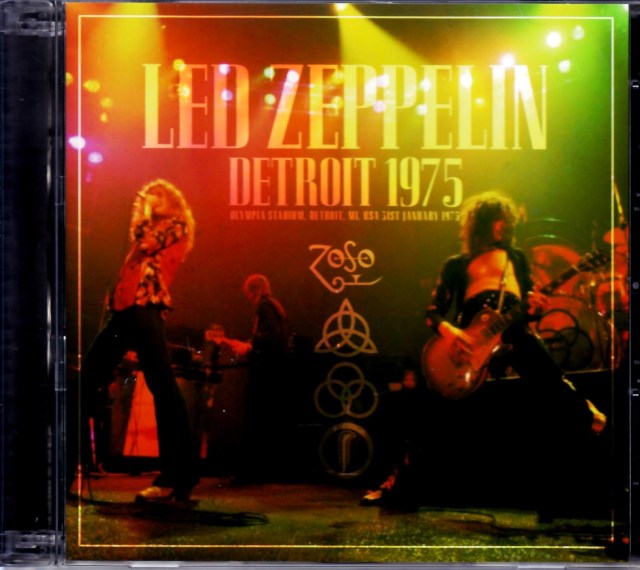

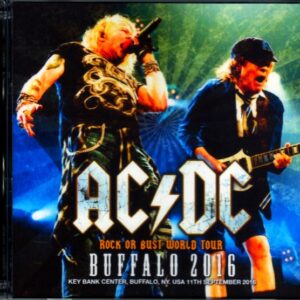
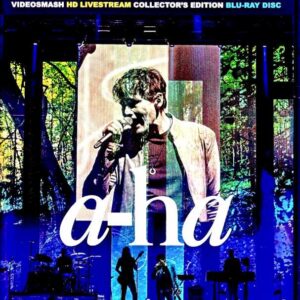
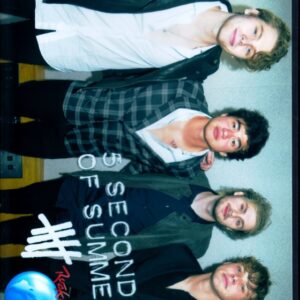
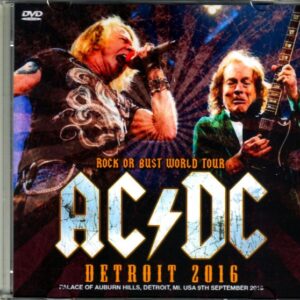
Reviews
There are no reviews yet.